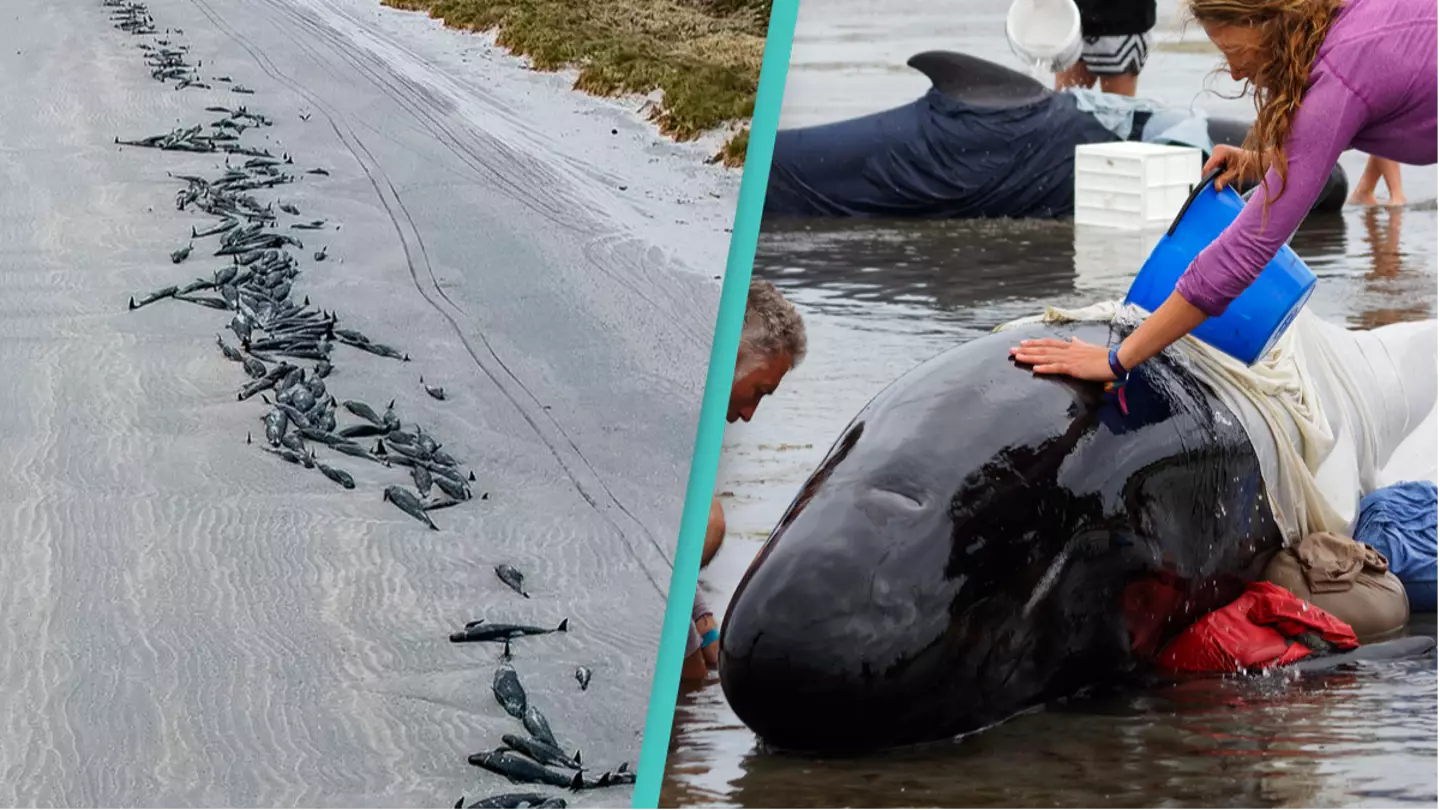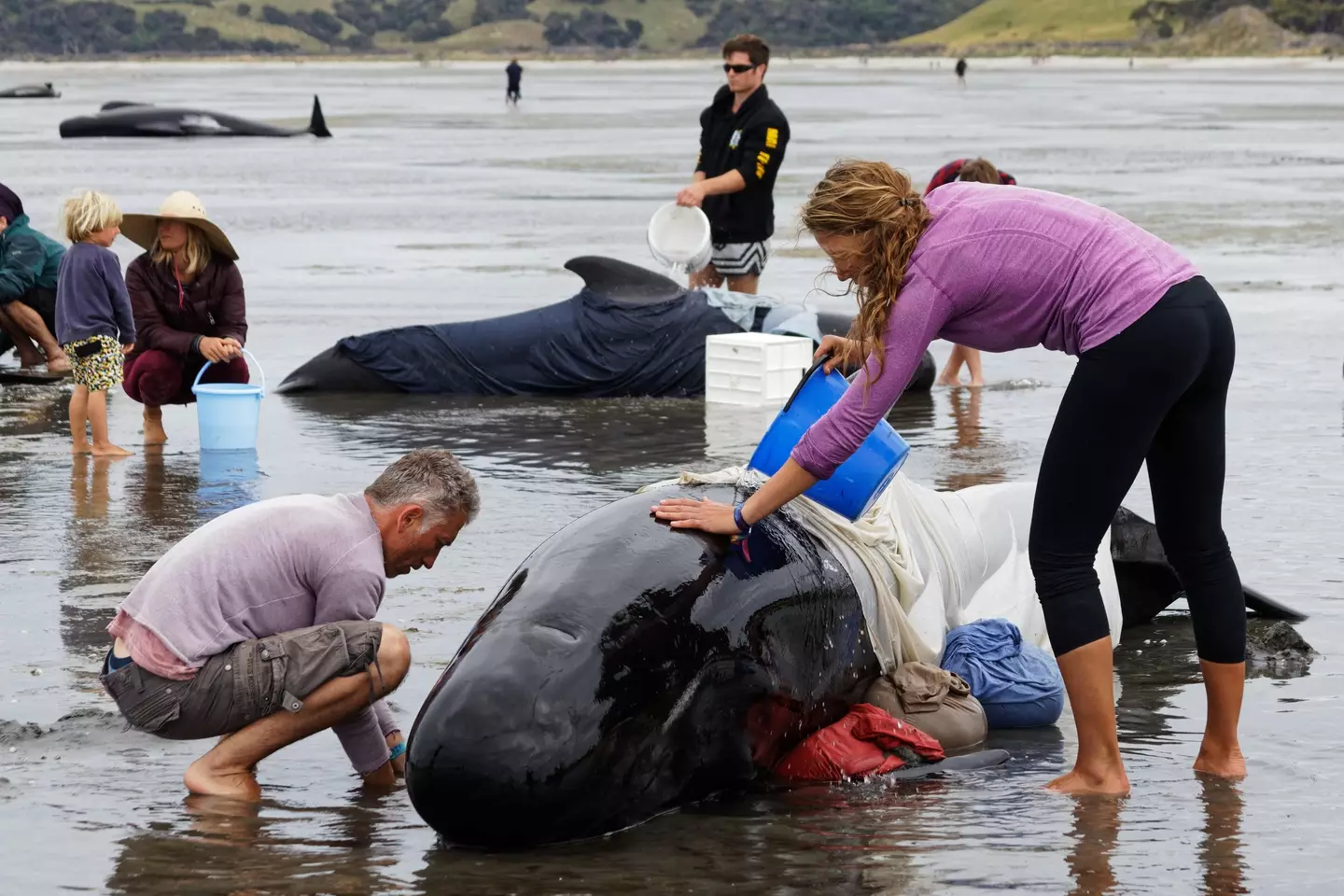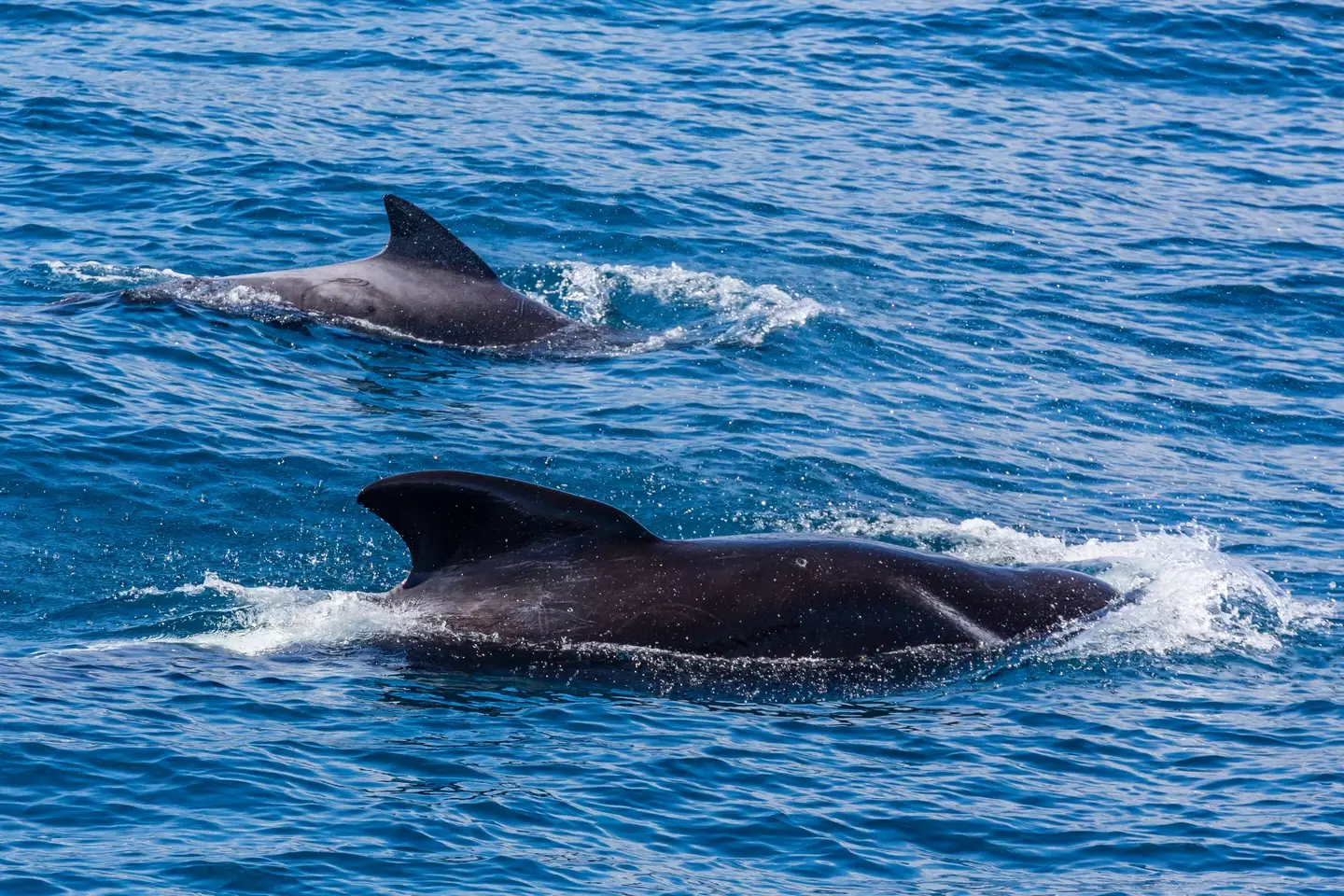
Some 477 pilot whales have died after becoming stranded on two remote New Zealand beaches in recent days, officials have confirmed.
The whales became stranded after washing up on the shores of the Chatham Islands, a remote archipelago around 500 miles east of New Zealand.
The beachings came in several waves, with 232 whales stranding themselves Friday at Tupuangi Beach on Friday, followed by another 245 washing ashore on Waihere Bay three days later.
None of the whales were able to be refloated and all of them either died naturally or were euthanized in a ‘heartbreaking loss', said Daren Grover, the general manager of Project Jonah, a nonprofit group which helps rescue whales.
Advert

The tragedy comes just two weeks after a similar incident in Australia, where around 200 pilot whales died after stranding themselves on a remote Tasmanian beach.
“These events are tough, challenging situations,” the Department of Conservation wrote in a Facebook post. “Although they are natural occurrences, they are still sad and difficult for those helping.”
Grover said the remote location and presence of sharks in the surrounding waters meant they couldn't mobilize volunteers to try to refloat the whales as they have in past stranding events, which factored into the unusually large death toll.
“We do not actively refloat whales on the Chatham Islands due to the risk of shark attack to humans and the whales themselves, so euthanasia was the kindest option,” said Dave Lundquist, a technical marine advisor for the conservation department.
The waters around the Chatham Islands are a plentiful source of food for the whales, and as they make their way into shallow waters their echolocation system can become confused and leave them disoriented.
“They rely on their echolocation and yet it doesn't tell them that they are running out of water,” Grover said.
“They come closer and closer to shore and become disoriented. The tide can then drop from below them and before they know it, they're stranded on the beach.”

Yet despite the tragedy, the circle of life continues unabated as Grover explained how the crew opt not to remove the carasses as they will be reclaimed by the sea in no short order.
“Nature is a great recycler and all the energy stored within the bodies of all the whales will be returned to nature quite quickly,” he said.
Over 40 different species of whale and dolphin are reported to live in the area around the Chatham Islands. Alongside pilot whales, sperm and Gray’s beaked whales are also occasionally seen in the waters, mostly in the area around the Chatham Rise.
If you have a story you want to tell, send it to UNILAD via [email protected]
Topics: World News, Animals, New Zealand
